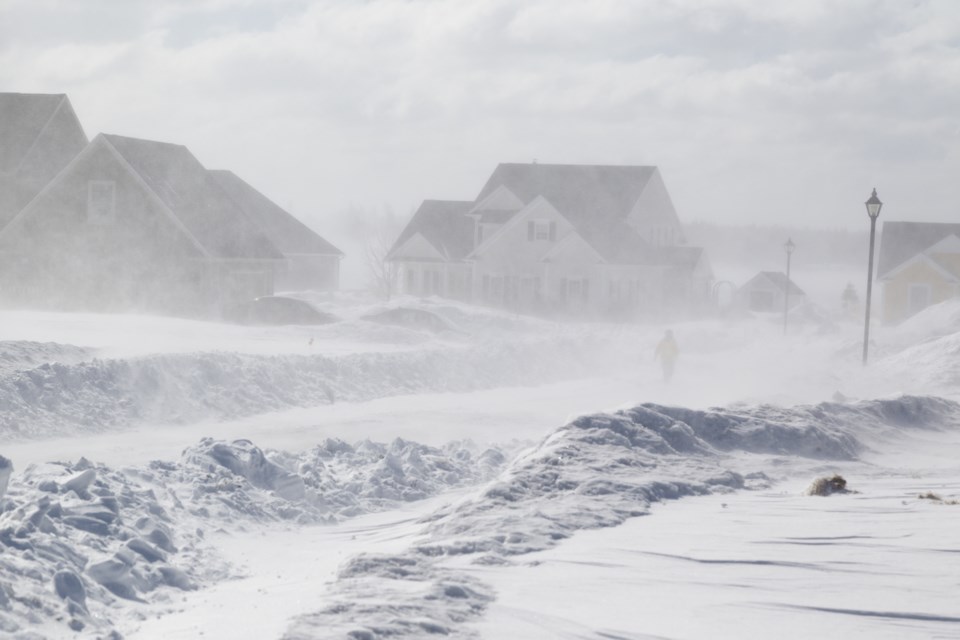Though the provincial government announced Friday the Algoma Public Health (APH) region will move into a yellow - protect zone starting Tuesday at 12:01 a.m. (lifting the state of emergency in the Sault and area, with certain restrictions in place), many questions remain.
Where do the homeless go to get warm in this nippy February weather over the long weekend, before the state of emergency lifts, and even afterward?
Community centres will be closed over the weekend, libraries and malls remain locked down or offering curbside service to shoppers/clients until Tuesday, and even then, they don’t act as overnight shelters.
What if there is a third wave and another state of emergency during cold weather?
“We have people in and out who need to warm up,” said Anne Penney, Pauline’s Place executive director.
“Absolutely, if they’re cold, we don’t leave them out there...we’re not going to turn anybody away if they’re cold. There is COVID, and we have to keep our numbers down, most of the time we’re at capacity because it is cold out, but we wouldn’t turn anybody away.”
The Pauline’s Place shelter for women, youth and families, located at 235 Wellington St. West, has an official capacity for 19 people, but now, with COVID, that official capacity sits at 12.
“All this being said, no one comes to the door where we say ‘we’re at 12, you’ve got to go out in the cold. We will help them...we have masks, shields, we take temperatures, we have sanitizers at the door, COVID screening, we keep everybody as safe as we can,” Penney said.
Males 18 years of age and over can find warm shelter at St. Vincent Place, located at 222 Albert St. East.
“There are emergency beds available but we don’t have a warming station. Under a normal situation we had 14 beds. We’re now regulated to eight (due to COVID social distancing regulations). We do have two emergency cots (after 11 p.m.), just in case the police bring somebody in at three o’clock in the morning,” said Nat Cichelli, St. Vincent Place general manager.
“We’ve had clients come in (during the cold snap). It’s available. It’s up to the client to make that call (if they want shelter). The police are really good at bringing in somebody they find on the street in the middle of the night with nowhere to go. They’ll call us and see if we can take them in.”
The St. Vincent Place Food Bank still operates, observing COVID regulations in mind, from 4:30 p.m. to 7 p.m. Wednesday and from 11:30 a.m. to 2:30 p.m. Saturday, also providing takeout meals on those days.
As things currently stand, the Sault Ste. Marie Soup Kitchen Community Centre cannot admit people in to warm up, but clients can obtain food.
“Right now they can only get a bag lunch at the door because of the Algoma Public Health restrictions on indoor gatherings,” said Dale Malboeuf, Sault Ste. Marie Soup Kitchen Community Centre volunteer coordinator.
Bag lunches are available for those in need at the Soup Kitchen from 11:30 a.m. to 4:30 p.m. Monday through Friday.
“Currently our emergency shelters (St. Vincent Place and Pauline’s Place) act as quasi-warming spaces for the homelessness population during such winter related events. Our shelters operate 24 hours per day,” replied Mike Nadeau, District of Sault Ste. Marie Social Services Administration Board chief administrative officer in an email.
“If we get an extreme cold (warning or advisory) issued by Environment Canada, it goes to our CAO’s office and that triggers a notification to frontline staff. Police, Fire Services, EMS, Social Services, St. Vincent Place, Pauline’s Place, the Soup Kitchen would all get notification to keep those clients informed, anyone who may be outdoors and doesn’t realize what’s going to happen, that there’s an incoming cold snap, so they can hopefully take themselves to a warm place where they would be looked after,” said Lauren Perry, City of Sault Ste. Marie emergency management coordinator.
Such places would normally include GFL Memorial Gardens, John Rhodes Community Centre and the Northern Community Centre, for example, Perry said (keeping COVID-19 restrictions, such as masking and social distancing in place, working in conjunction with Algoma Public Health).



